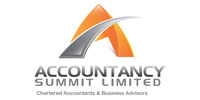Stamp duty, capital gains tax and other tax considerations can be important elements of a corporate finance transaction. Appropriate tax planning can help ensure you minimise any stamp duty and capital gains tax liabilities when you buy or restructure a business. Tax planning is also a key issue if you are thinking of selling a business.
Stamp duty
Three forms of stamp duty may apply in corporate finance transactions.
Either stamp duty or stamp duty reserve tax is payable when you acquire shares. Stamp duty reserve tax is charged on electronic purchases - such as typical stock market purchases made through a stockbroker. Stamp duty is charged when you use a paper stock transfer form - as might be the case, for example, if you purchase a private company.
Both stamp duty and stamp duty reserve tax are usually charged at 0.5% of the purchase price. Stamp duty is not payable on transactions with a total value of £1,000 or less (but stamp duty reserve tax is).
If you are purchasing land or property, stamp duty land tax may be payable. Stamp duty land tax can apply to both freehold and leasehold purchases. Stamp duty land tax rates for non-residential property range from 0% to 4% depending on the value of the property and annual rent.
Residential homes attract stamp duty ranging from 0% to 17%, depending on the value of the property, and whether the purchaser already owns another property or is a company.
Capital gains taxes
Capital gains tax (for individuals) or chargeable gains liable to corporation tax may be payable on any gains arising as part of a corporate finance transaction. For example, a restructuring that involves selling an asset and leasing it back could produce a taxable capital gain on the asset. More complex capital gains considerations can be involved in situations such as the reorganisation of a group of companies.
Capital gains tax planning for any acquisition or restructuring should also look ahead. You need to take into account the likely capital gains tax treatment of future gains if you later sell or reorganise the business — including your personal capital gains tax position when selling a business you own.
HMRC has produced a range of toolkits for those who need to report chargeable gains from buildings, land or shares on their income tax self assessment return.
Download the HMRC capital gains tax for shares toolkit (PDF) or the HMRC Capital gains tax for land and buildings toolkit (PDF).
Acquisition tax planning
You should take advice on the best way to structure transactions so that stamp duty and other taxes are minimised. For example, the way stamp duties apply will differ depending on whether you acquire the assets of a company or the company itself. Similarly, there may be opportunities to mitigate stamp duty by acquiring a property-owning company rather than directly purchasing the property involved.
The way a transaction is structured can also involve significant and sometimes complex VAT issues.
Bear in mind that there are other issues involved, for example, whether you will be taking on a company's liabilities as well as its assets. Your tax planning should also take into account the seller's tax position. Structuring the transaction in a way that reduces their tax liabilities can be part of negotiating a lower purchase price.
Financing and business taxes
Broader tax issues are involved in the way you finance your business or fund an acquisition. At its simplest, finance costs are typically allowable expenses for corporation tax (or income tax for the self-employed). More complex issues can include the treatment of foreign currency income and expenses, use of sophisticated financing tools such as options, and so on.
You may want to consider taking advice, both on the tax treatment of different forms of financing and the most appropriate financing structure for your business.
